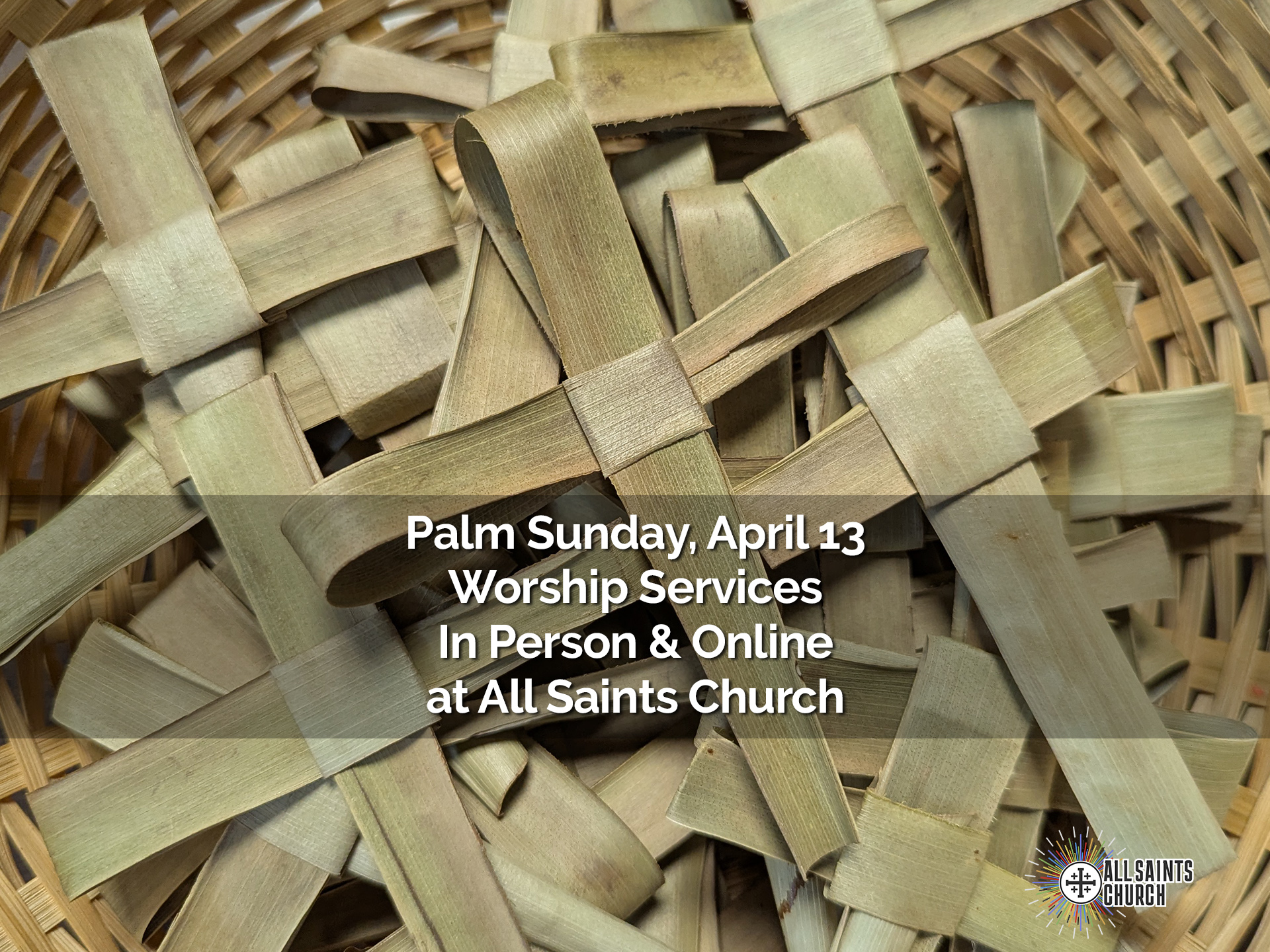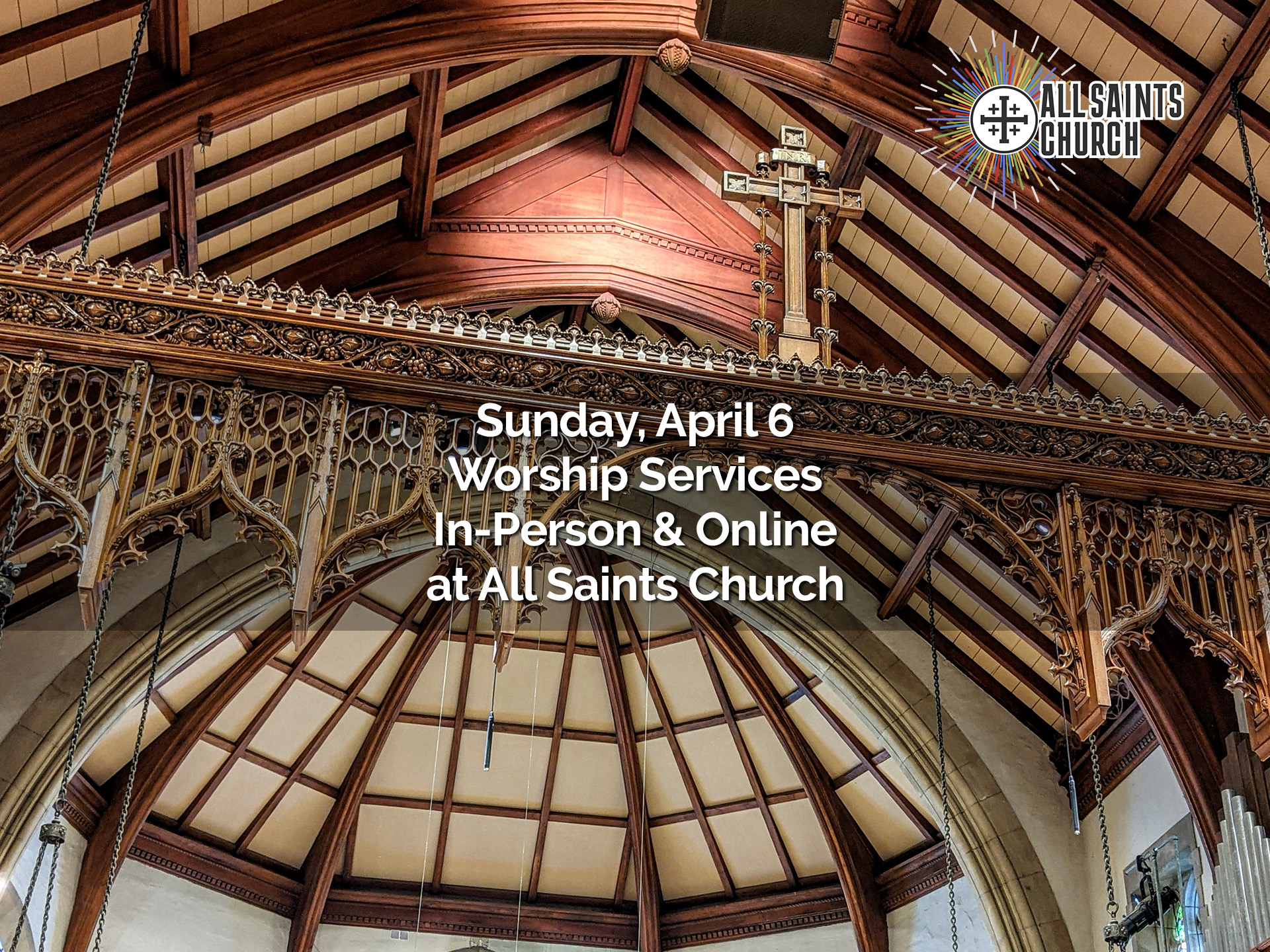by Mike Kinman, Rector of All Saints Church
There has been a lot of conversation about praying for the president-elect. That’s good. Conversation is good. Conversation about the purpose of prayer is fantastic. I hope it draws us into a deeper consideration of the role of prayer in our lives and common life.
A lot of conversation has been swirling around our decision at All Saints not to pray for president-elect Trump by name for at least the near future. I’ve experienced that conversation as energizing and often deeply moving. It has, however, at times been ill-informed — with people reading the headline and drawing their own conclusions as to what is going on at All Saints Church. So I want to restate, elaborate and give an update on the process in which we are engaging and what we are learning.
First off, if you haven’t already, please read what I wrote about what we will be doing at All Saints Church.
This is a pastoral decision — and it is an interim decision. As I write in the piece, we realized this was a unique situation and we were struggling with whether praying for this president by name would compromise the safety of the worshipping community — particularly for people who are threatened with deportation (or themselves of for their families) or for women who have suffered sexual abuse at the hands of men. We noticed as we got closer to inauguration, our sense of this trauma in the community grew so we decided to go into a listening period — and while that was going on to remove all names (not just political leaders but bishops) from the prayers of the people … but still pray for those people by office (this is actually the liturgical norm of the Book of Common Prayer).
So we have been listening and people have been talking. We are blessed with an excellent pastoral care staff — clergy and lay — including a priest (Sally Howard) who is also a therapist trained in trauma informed care. We are taking this incredibly seriously. As we are listening — and that is still in process — we are discovering two things:
1) Almost universally there is agreement that we should pray for the president — perhaps especially this incoming president — whether by name or not (which is what we will be doing). In our conversation about this at vestry, the majority of those who expressed an opinion believed it was important for us … particularly as a congregation who stands against much of what he stands for … to pray for him by name. Jesus calls us by name. We call each other by name. Names are important.
2) There are indeed people in our congregation for whom the anticipation of praying for Donald Trump by name in the worship service is legitimately triggering trauma and compromising the safety of the worship space. I am talking about the clinical definition of trauma not just “I don’t like it” or “It’s really hard for me.”
I am informed in this work by the work of Becca Stevens at Thistle Farms and my own work at Magdalene St. Louis — which is the best example I know of trauma-informed communities of healing. As we know from our reading of “Find Your Way Home,” in Magdalene one of the principles is “Forgive and Feel Freedom” — but because the trauma of the wound does not just go away by force of will (or by someone telling you to get over it) but takes time and must be loved into a place where it can be lived with and forgiveness is possible — that principle of forgiveness must be worked toward and not mandated. It takes a community willing to receive and hold the person and their trauma and love one another into that place of forgiveness and freedom.
The same is true here. We can agree that Jesus loves Donald Trump and that we all should pray for him. And we also know that Jesus stands with and as those who are most marginalized, traumatized and abused. And so our job as a community is to be sensitive to the needs of those among us who are experiencing trauma — and to love one another into a place where we can all “feel freedom” — in this case into a place where praying for Donald Trump by name doesn’t create a trauma reaction and compromise the safety of the worshipping community.
That means not just saying “OK, we can’t handle it” — but recognizing that the inability to pray for Donald Trump by name represents a continuing power that abusers are having over people. Our job – and joy — as Christian community is to liberate one another from the continuing power of the abuser and help us get to a space where no abuser has power over us … where we can “forgive and feel freedom,” and, in this case, where we can pray by name — and that prayer can be a source of strength, lamentation, love and resistance.
As our senior associate for pastoral care, Zelda Kennedy, said at our vestry meeting — we are confident we will get to that point eventually. God’s dream for all of us is healing and wholeness — and so we will continue to work together and bid the Holy Spirit help us in that work. But it’s becoming clear that we are not there yet. And that’s OK. That’s us being real with each other … and it is also having the effect of giving permission for people (particularly women) to recognize that All Saints Church is a safe place to share their stories and to receive the healing of Christ’s love. Love of a God who, as Anne Lamott loves to quip, loves us as we are but loves us too much to leave us that way.



